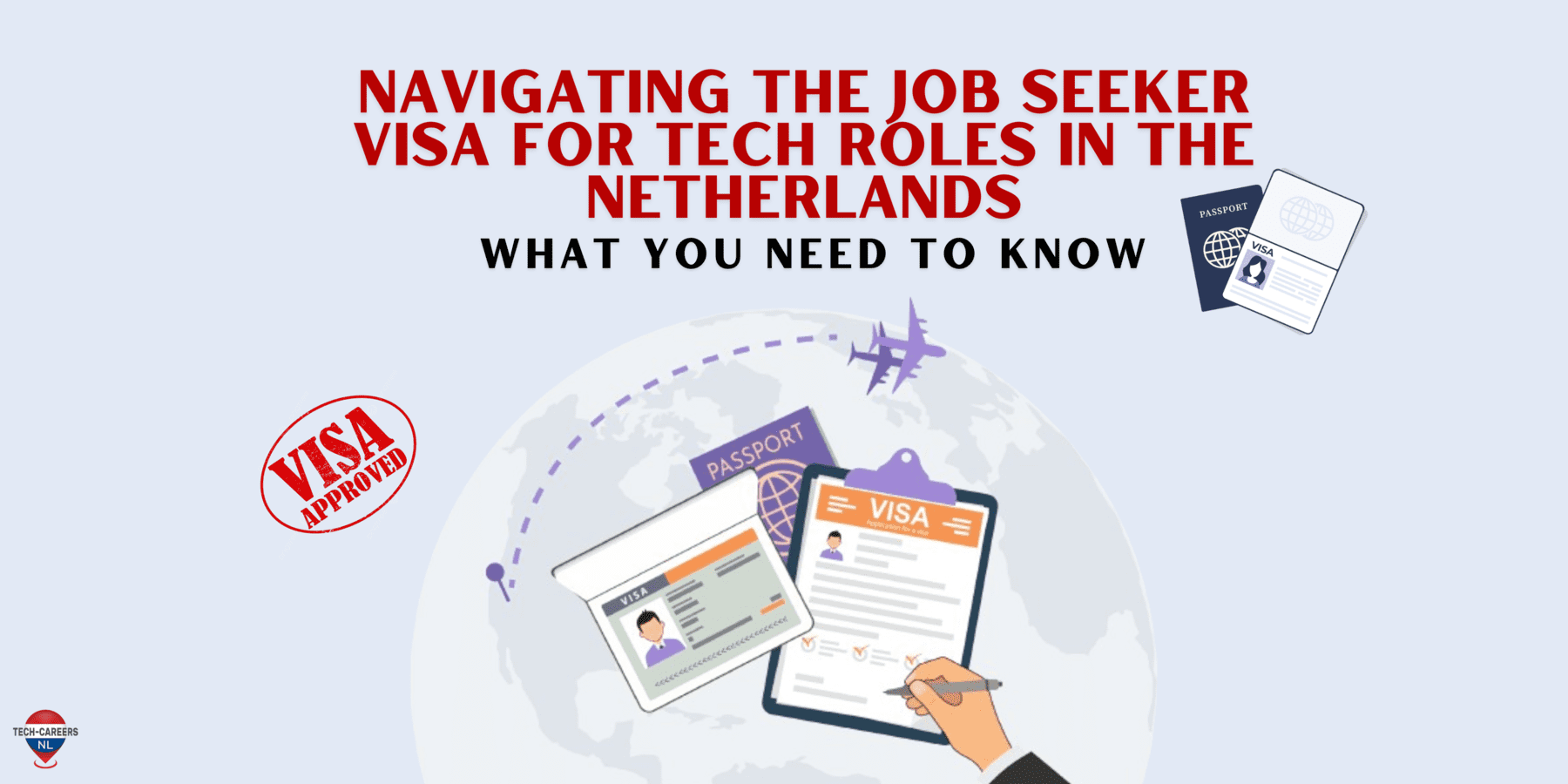
The Netherlands has rapidly become a leading hub for tech innovation, attracting professionals from around the world with its thriving startup scene, established tech giants, and progressive work culture. For tech professionals aiming to enter this vibrant job market, the job seeker visa Netherlands provides a unique opportunity. This visa allows qualified individuals to reside in the Netherlands for up to one year while searching for suitable employment, particularly in high-demand sectors like software development, data science, and IT management.
Securing a job seeker visa is especially beneficial for those targeting Netherlands tech jobs, as it enables you to be physically present in the country, enhancing your chances of networking, attending interviews, and landing your desired role. Being on the ground allows tech professionals to better understand the local job market, meet potential employers in person, and adapt quickly to the Dutch work environment.
With a job seeker visa, you also gain the flexibility to explore various tech roles without the immediate pressure of securing sponsorship before arriving. This is crucial in a competitive market where companies often prefer candidates who are already in the country and available to start work immediately. Moreover, having this visa demonstrates to employers your commitment to integrating into the Dutch tech ecosystem, making you a more attractive candidate for Netherlands tech jobs.
Overall, the job seeker visa Netherlands is an invaluable tool for tech professionals who wish to explore career opportunities in one of Europe’s most dynamic and innovative job markets. It not only opens doors to potential employment but also provides the chance to experience the Dutch lifestyle and work culture firsthand, setting the stage for a successful career in the Netherlands.
Eligibility Criteria for the Job Seeker Visa
The job seeker visa in the Netherlands is a valuable pathway for tech professionals who want to explore job opportunities without having a job offer beforehand. This visa, often referred to as the Netherlands visa without job offer, allows you to live in the country for up to one year while you actively search for employment in your field. Understanding the eligibility criteria for this job visa Netherlands is crucial to ensure a successful application. Here are the main requirements:
- Recognized Qualifications
To be eligible for the Netherlands job seeker visa, you must have completed higher education that meets Dutch standards. Typically, this means having a Bachelor’s, Master’s, or PhD degree from a recognized institution, preferably in a field related to tech such as Computer Science, Data Analytics, or Software Engineering. Degrees from top-ranked universities or recognized international programs are often favored. - Recent Graduation or High Potential Profile
This visa is ideal for recent graduates from Dutch universities or recognized international institutions. However, you don’t necessarily need to be a recent graduate to qualify; having a high potential profile, such as specialized tech skills or significant work experience in the tech industry, can also boost your eligibility for the Netherlands visa without a job offer. - Proof of Sufficient Financial Means
Applicants must demonstrate that they have adequate financial resources to support themselves during their stay in the Netherlands. This proof usually involves showing bank statements or financial guarantees that cover living expenses for the duration of the visa, ensuring that you can sustain yourself while searching for a job. - Valid Health Insurance
Having health insurance that covers your stay in the Netherlands is a mandatory requirement. Your insurance must meet Dutch standards, ensuring that you have access to medical care if needed during your time in the country. - Clean Criminal Record
To be eligible for this job visa Netherlands, you must provide a clean criminal record certificate from your home country or any other country where you have resided for an extended period. This requirement ensures that only individuals who meet the country’s safety standards are allowed entry. - No Prior Use of the Same Visa
If you have previously held a job seeker visa in the Netherlands, you are not eligible to apply for the same visa again. The visa is intended as a one-time opportunity to secure employment and integrate into the Dutch job market. - English or Dutch Language Proficiency
While not strictly mandatory, having proficiency in English or Dutch can significantly increase your chances of success. Most Netherlands tech jobs require a good command of English, and demonstrating language skills can make you a more attractive candidate to potential employers.
Meeting these eligibility criteria is essential for securing a Netherlands visa without a job offer. By ensuring that you meet all the requirements, you can position yourself to take full advantage of the job seeker visa, providing you with the freedom and flexibility to explore exciting tech opportunities in the Netherlands.
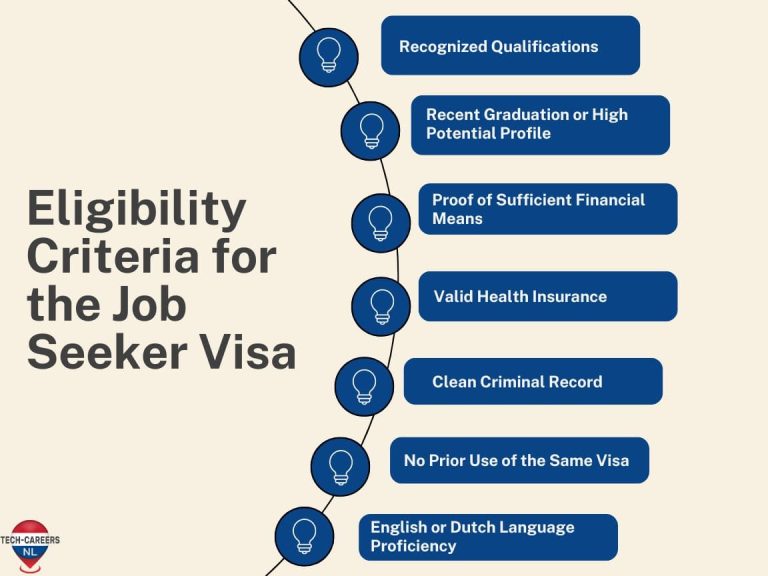
Documents Required for the Application
Applying for the Netherlands job seeker visa requires careful preparation and the submission of specific documents that demonstrate your eligibility and readiness to live and work in the country. Meeting all the Netherlands job seeker visa requirements is crucial, especially if you aim to explore opportunities in tech, including remote job in the Netherlands. Here’s a detailed list of the documents you need to prepare for a successful application:
- Valid Passport
A valid passport is essential for your visa application. Ensure your passport has at least six months of validity remaining beyond your planned stay in the Netherlands. You will need to provide clear copies of the passport’s identification pages. - Degree Certificates and Transcripts
You must provide certified copies of your educational qualifications, such as your Bachelor’s, Master’s, or PhD degrees, along with transcripts. These documents are critical to proving that you meet the academic criteria of the Netherlands job seeker visa requirements, especially for tech professionals with qualifications relevant to IT and engineering roles. - Proof of Sufficient Financial Means
Applicants must demonstrate that they have adequate financial resources to support themselves during their stay. This typically involves providing recent bank statements showing enough funds to cover your living expenses for the duration of the visa. This requirement ensures that you can support yourself while exploring job opportunities or remote work Netherlands. - Health Insurance Documentation
Proof of valid health insurance that covers your stay in the Netherlands is required. The insurance should comply with Dutch standards, providing adequate coverage for medical emergencies during your time in the country. - Clean Criminal Record Certificate
You must submit a police clearance certificate or criminal record check from your home country or any other country where you have lived for more than six months in the last five years. This certificate proves that you meet the ethical standards required by Dutch immigration authorities. - Motivational Letter
A motivational letter explaining your reasons for seeking a job in the Netherlands can enhance your application. Highlight your plans, including the tech roles you are targeting, your professional background, and how obtaining this visa will help you integrate into the Dutch job market. If you are considering remote work opportunities in the Netherlands, mention this as part of your job search strategy. - Proof of Accommodation
Providing proof of accommodation, such as a rental agreement or booking confirmation, can further support your application. This document shows that you have arranged suitable living conditions during your stay while searching for employment. - Completed Visa Application Form
Fill out the official job seeker visa application form available on the Dutch Immigration and Naturalisation Service (IND) website. Make sure all information is accurate and consistent with your supporting documents to avoid any delays in processing. - Passport-Sized Photos
Submit recent passport-sized photos that meet the Dutch visa photo requirements, typically involving specific dimensions and background color. - Additional Supporting Documents (if applicable)
Include any other relevant documents that might strengthen your application, such as reference letters from previous employers, proof of participation in tech projects, or certificates of language proficiency.
Gathering these documents carefully and ensuring they meet the Netherlands job seeker visa requirements will significantly enhance your chances of approval. By preparing a comprehensive and accurate application, you can position yourself effectively to explore tech jobs or even remote work in the Netherlands, opening doors to a dynamic and rewarding career in one of Europe’s leading tech hubs.
Step-by-Step Application Process
Navigating how to apply for the Netherlands job seeker visa is straightforward if you follow the correct steps. Here’s a quick guide to ensure your application goes smoothly, whether you’re targeting in-office roles or seeking job visa sponsorship Netherlands opportunities:
- Secure Required Documents
Collect all necessary documents, including your passport, degree certificates, proof of financial means, health insurance, and a clean criminal record. Ensure everything is up-to-date and meets the Netherlands job seeker visa requirements. - Complete the Application Form
Visit the Dutch Immigration and Naturalisation Service (IND) website, create an account, and fill out the job seeker visa application form. Double-check all details to ensure accuracy. - Submit Your Application
Submit your application online via the IND portal or visit a Dutch embassy or consulate in your home country to apply in person. Make sure to upload or bring all supporting documents. - Pay the Application Fee
Pay the visa application fee, which covers processing costs. Fees can vary, so check the latest rates on the IND website before applying. - Attend an Interview (if required)
You may be asked to attend an interview, either at the embassy or consulate, to verify your details and discuss your job search plans, including any aspirations for job visa sponsorship in the Netherlands. - Wait for Processing
Visa processing typically takes a few weeks. During this time, your documents will be reviewed, and you’ll receive a decision on your application. - Receive Your Visa and Move to the Netherlands
Once approved, you’ll receive your job seeker visa, allowing you to move to the Netherlands to begin your job search. Upon arrival, register with local authorities if required.
Following these steps on how to apply for Netherlands job seeker visa will set you on the right path toward finding a job and possibly securing job visa sponsorship Netherlands offers, enhancing your career prospects in the country.
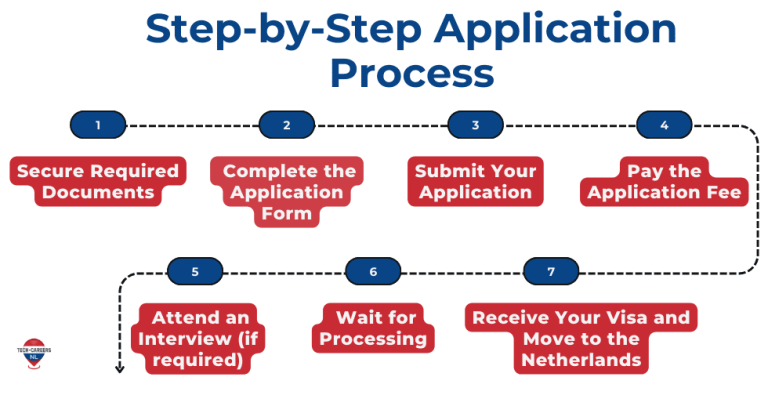
Transitioning from Job Seeker Visa to Work Permit
Once you secure a job while on a job seeker visa, the next critical step is transitioning to a work permit. This transition is essential for continuing your employment legally in the Netherlands, whether you’re pursuing in-office roles, remote work opportunities, or positions offering visa sponsorship. Here’s how you can smoothly move from a job seeker visa to a work permit, including options for a Netherlands remote work visa.
- Secure a Job Offer with Visa Sponsorship
To transition from a job seeker visa to a work permit, you must first secure a job offer that includes visa sponsorship. Many tech companies actively advertise job vacancies in Netherlands with visa sponsorship, particularly in high-demand areas such as software development, data analytics, and cybersecurity. Your new employer must be recognized by the Dutch immigration authorities (IND) as a sponsor to facilitate this process. - Apply for the Appropriate Work Permit
Once you have a job offer, your employer will need to apply for a work permit on your behalf. Common permits include the Highly Skilled Migrant visa, which is popular among tech professionals, and the Netherlands remote work visa, ideal for roles that allow you to work from anywhere. The type of work permit you apply for will depend on your job role, salary, and employer’s status. - Submit Required Documentation
For the work permit application, you’ll need to provide several documents, including your employment contract, proof of qualifications, and details of your job seeker visa. Your employer may also need to submit evidence of their sponsorship status and confirmation of your salary meeting the required thresholds. - Meet Salary and Job Requirements
To qualify for a work permit, your job must meet certain conditions, including minimum salary requirements set by the Dutch government. This is especially important for remote work visa Netherlands options, where you must prove that your role is structured and well-compensated, aligning with Dutch labor standards. - Wait for Approval and Permit Issuance
Once the application is submitted, you’ll need to wait for approval from the IND. Processing times vary, but approvals are typically granted within a few weeks if all requirements are met. Upon approval, you will be issued a work permit that allows you to legally continue working in the Netherlands. - Register with Local Authorities and Update Residence Status
After obtaining your work permit, you may need to update your residence status with local authorities. This step is crucial for maintaining your legal stay and ensuring you are compliant with Dutch immigration laws.
Transitioning from a job seeker visa to a work permit or a Netherlands remote work visa is a vital step in solidifying your employment in the Netherlands. By securing job vacancies in the Netherlands with visa sponsorship, you can extend your stay and continue building your tech career in one of Europe’s most innovative markets.
Start Your Tech Career in the Netherlands Now
Secure your job seeker visa, navigate the application process, and transition smoothly to a work permit, unlocking endless job opportunities in one of Europe’s most innovative tech markets.


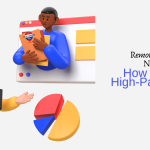 Previous Post
Previous Post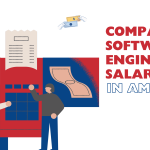 Next Post
Next Post